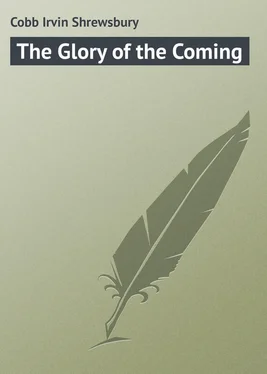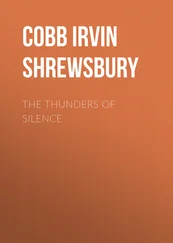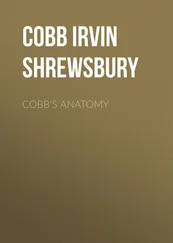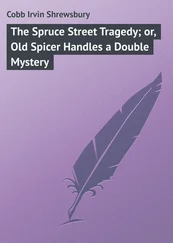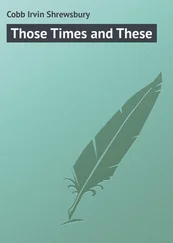Irvin Cobb - The Glory of the Coming
Здесь есть возможность читать онлайн «Irvin Cobb - The Glory of the Coming» — ознакомительный отрывок электронной книги совершенно бесплатно, а после прочтения отрывка купить полную версию. В некоторых случаях можно слушать аудио, скачать через торрент в формате fb2 и присутствует краткое содержание. Жанр: foreign_prose, foreign_language, на английском языке. Описание произведения, (предисловие) а так же отзывы посетителей доступны на портале библиотеки ЛибКат.
- Название:The Glory of the Coming
- Автор:
- Жанр:
- Год:неизвестен
- ISBN:нет данных
- Рейтинг книги:3 / 5. Голосов: 1
-
Избранное:Добавить в избранное
- Отзывы:
-
Ваша оценка:
- 60
- 1
- 2
- 3
- 4
- 5
The Glory of the Coming: краткое содержание, описание и аннотация
Предлагаем к чтению аннотацию, описание, краткое содержание или предисловие (зависит от того, что написал сам автор книги «The Glory of the Coming»). Если вы не нашли необходимую информацию о книге — напишите в комментариях, мы постараемся отыскать её.
The Glory of the Coming — читать онлайн ознакомительный отрывок
Ниже представлен текст книги, разбитый по страницам. Система сохранения места последней прочитанной страницы, позволяет с удобством читать онлайн бесплатно книгу «The Glory of the Coming», без необходимости каждый раз заново искать на чём Вы остановились. Поставьте закладку, и сможете в любой момент перейти на страницу, на которой закончили чтение.
Интервал:
Закладка:
Through all this, weaving in and out, our impudent little black bug of a car scuttled along, with its puny horn honking a constant and insolent demand for clear passage. At a faster gait than anything in sight except the cruising aëroplanes above, we progressed upon our way, with none to halt us and none to turn us back. Where the dust hung especially thick at a crossroads set in the midst of the wide plain we almost struck three pedestrians who seemingly did not heed our hooted warning or take notice of it until we were right upon them. As they jumped nimbly for the ditch we could see that all these had staff markings at their throats, and that one, the eldest of the three, a stoutish gentleman with a short grizzled beard, wore three stars in a triangle upon his collar. Tin Lizzie had almost achieved the distinction for herself of having run down a major general of France.
We did not stop, though, to offer apologies or explanations. With rare sagacity our driver threw her wide open and darted into the fog, to take temporary shelter behind a huge supply wagon, which vehicle we followed for a while after the fashion of a new-foaled colt trailing its dam.
Proofs began to multiply that we were nearing the zone of live combat. Until now the only British soldiers we had seen were slightly wounded men bound afoot for the rear. All at once we found ourselves passing half a company of khaki-clad Britishers who travelled across a field over a course parallel to the one we were taking and who disappeared in a hazel copse beyond. Rifle firing could be heard somewhere on the far side of the thicket. At a barked command from an officer who clattered up on horseback a battery of those doughty little seventy-fives, which the French cherish so highly, and with such just cause, was leaving the road and taking station in a green meadow where the timid little wild flowers of a mild March showed purple and yellow in the rutted and trampled grass.
With marvellous haste the thing was accomplished almost instantly. The first gun of the five squatted in the field with its nozzle slanting toward the northwest, and behind it its four companions stood, all with their short noses pointing at precisely the same angle, like bird dogs on a back stand. Suddenly they did what well-broken bird dogs never do – they barked, one after the other. Almost before the whining whistle of the shells had died away the gunners were moving their pieces to a point closer up behind a screen of poplars and sending a second yelping salvo of shots toward an unseen target.
We became aware that the component units of the army were now quitting the roadway to take positions in the back lines. Indeed those back lines formed themselves while we watched. One battery after another swung off to the right or to the left and came into alignment, so that soon we rode between double rows of halted guns. With our canes we could have touched the artillerymen piling heaps of projectiles in convenient hollows in the earth close up to the edges of the road. Big covered wains discharged dusty infantrymen, who, pausing only long enough to unbuckle their packs from their shoulders and throw them under the hoods of the wagons, went at a shambling half-trot through the meadow. Cavalrymen, not dismounted, as they had mainly been during these dragging winter months of warfare that was stationary and static, but with their booted feet once more in their stirrups, cantered off, bound presumably for the thin woodlands which rimmed the plateau where the terrain broke away to the banks of the River Oise.
Here again at last was war in the open, as different from battle in the trenches as football is from trap shooting. The action of it was spread out before one’s eyes, not masked in mud ambuscades. Each instant our eyes beheld some new and stirring picture, standing out by reason of its swift vigour from the vaster panorama of which it was a part. What I had seen of battle formations in the preceding three weeks had made me think mainly of subway diggin’s or of construction work for a new railroad or of engineering operations in connection with a dam, say, or a dike. What I saw now most vividly suggested old-time battle pictures by Meissonier or Détaillé. War, for the moment at least, had gone back to the aspect which marked it before both sides dug themselves in to play the game of counterblasting with artillery and nibbling the foe’s toes with raids and small forays.
Of another thing we were likewise aware, and the realisation of the fact cheered us mightily. Among the blue uniforms of the French the greenish buff of the British showed in patches of contrasting colour that steadily increased in size and frequency. By rare good luck we had entered the advanced positions at the identical place for which, blindly, we had been seeking – the place where the most westerly sector of the French left wing touched the most easterly sector of the British right wing; and better than that, the place where the French strength hurrying up to reënforce and if need be replace decimated divisions of their allies was joined on to and fused in with the retiring British Army, which, during the preceding three days, had sustained the main force of the German offensive. It was here if anywhere that we could count with the best prospects of success upon boring straight through to the Front, the reason being that the French might assume the British had given us passage and the British might assume the French had let us by.
There were perhaps three more miles of brisk travelling for us, during which I am sure that I saw more than ever I have seen in any three miles that ever I traversed in my life; and at the end of that stretch we could tell that we had well-nigh outrun the forward crest of the French ground swell and had come into the narrower backwash of the British retreat. A retreat of sorts it may have been, but a rout it most assuredly was not. We saw companies reduced to the strength of ten or twelve or twenty men under command of noncommissioned officers or possibly of a single lieutenant. We saw individual privates and we saw privates in squads of two or three or half a dozen men, who in the terrific fighting had become separated from a command, which possibly had been scattered but which it was more likely had been practically wiped out. Such men were not stragglers, nor were they malingerers; they were survivors, atoms flung backward out of the raging inferno which had swallowed up whole regiments and whole brigades.
And we took note that every single man of these broken and decimated detachments was in good humour, though dog tired; and that every single one of them had kept his accoutrements and his rifle; and that every single one of them, whether moving under orders or acting upon his own initiative, was intent upon just two things and two things only – to get back into the maelstrom from which temporarily he had been spewed forth, and pump more lead into the living tidal wave of grey coats. Some that we overtook were singing, and singing lustily too. Than this no man could ask to see a finer spectacle of fortitude, of pluck and of discipline, and I am sure that in his heart each one of us, while having no doubt of the outcome of the fiery test, prayed that our own soldiers, when their time of trial by battle came, might under reverses and under punishment acquit themselves as well as had these British veterans, Yorkshire and Bedfordshire and Canada, who came trudging along behind us, swallowing our dust. What impressed us as most significant of all was that only once that day did we see a scrap of personal equipment that had been cast aside. This was a cartridge belt of English make, with its pouches empty and its tough leather tom almost in two, lying like a broken-backed brown snake in a ditch.
Already from wounded English soldiers and from exhausted English hospital workers whom we had seen back in Soissons we comprehended a measure of appreciation of what these battered fragments of the forces had been called upon to endure during four days and five nights. We knew as surely as though we had stopped to take down the story of each one of the wearied, cheerful, resolute chaps, that they had their fill of killing the enemy and of seeing their mates about them blown to bits by high explosives or mowed down by rifle fire. I recalled what a bedraggled young surgeon, a Highlander by his accent, had said the night before:
Читать дальшеИнтервал:
Закладка:
Похожие книги на «The Glory of the Coming»
Представляем Вашему вниманию похожие книги на «The Glory of the Coming» списком для выбора. Мы отобрали схожую по названию и смыслу литературу в надежде предоставить читателям больше вариантов отыскать новые, интересные, ещё непрочитанные произведения.
Обсуждение, отзывы о книге «The Glory of the Coming» и просто собственные мнения читателей. Оставьте ваши комментарии, напишите, что Вы думаете о произведении, его смысле или главных героях. Укажите что конкретно понравилось, а что нет, и почему Вы так считаете.
